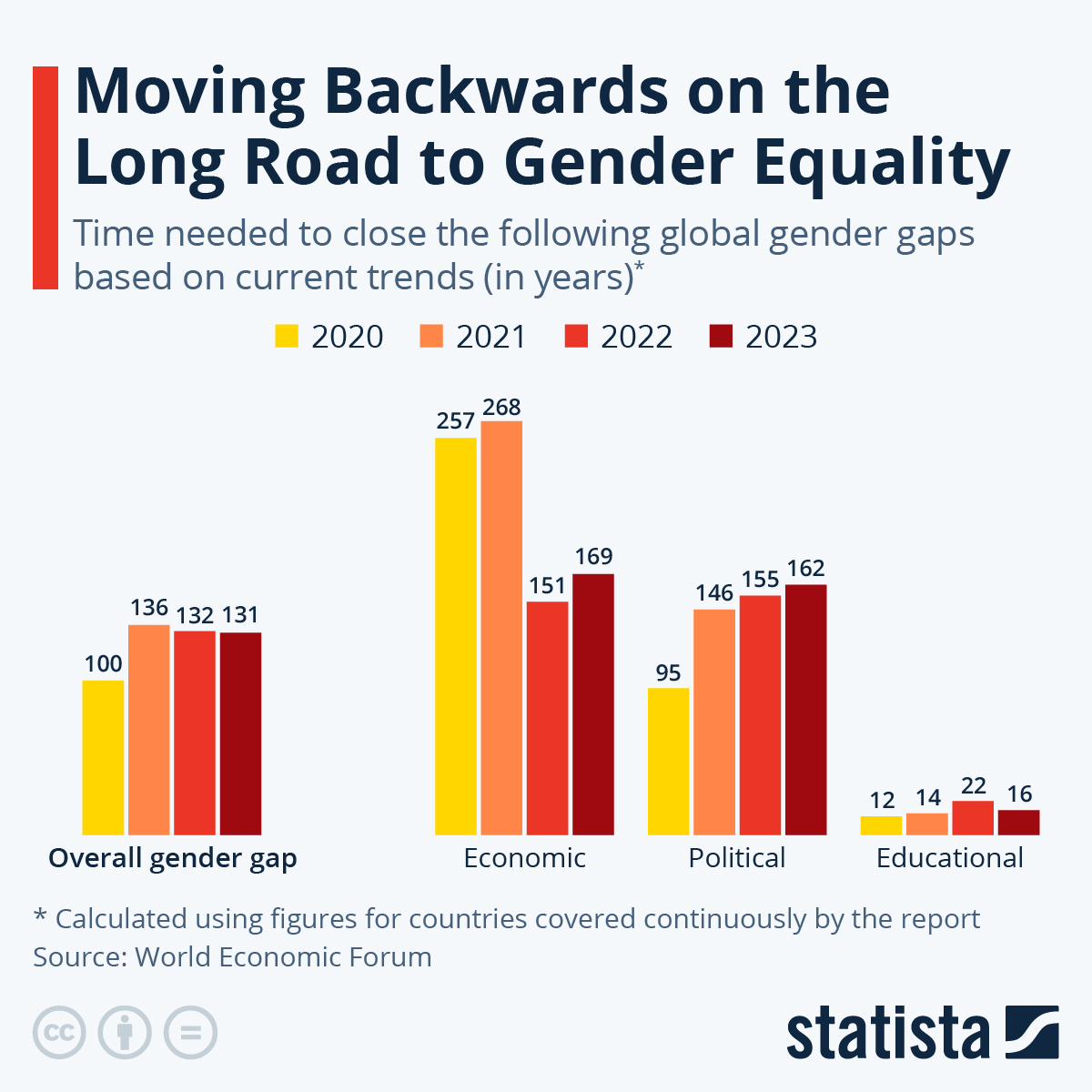Based on 2023 trends, the global gender gap is not expected to close for another 131 years - around 30 percent longer than the World Economic Forum's 2020 outlook predicted. While economic prospects for women have improved majorly once more as the Covid-19 pandemic subsided, the world has been going backwards on the long road to gender equality concerning political and educational equality. The time required to close the political gender gaps is now forecast at 162 years - rising for the third year in a row, while educational parity is expected in 16 years - down from 2022, but still up from 2020 and 2021. Saadia Zahidi, Managing Director and Head of the WEF's Centre for the New Economy and Society sees the reasons behind this in "previous progress disrupted by the COVID-19 pandemic’s impact on women and girls in education and the workforce, followed by economic and geopolitical crises." She concludes that "some parts of the world are seeing partial recoveries while others are experiencing deteriorations as new crises unfold."
The global economic gender gap has been the most volatile over the years as women's participation in the workforce is often first to be affected by economic crises. While overall progress on the gender gap still carried on in 2020 from pre-pandemic levels, economic participation already deteriorated and stayed at a comparably low level in 2021. The index recovered in 2022 but regressed once more this year. While the report has been striving for comparability, the number of continuously surveyed countries has changed slightly between 2018 and 2023 from 106 to 102.





















